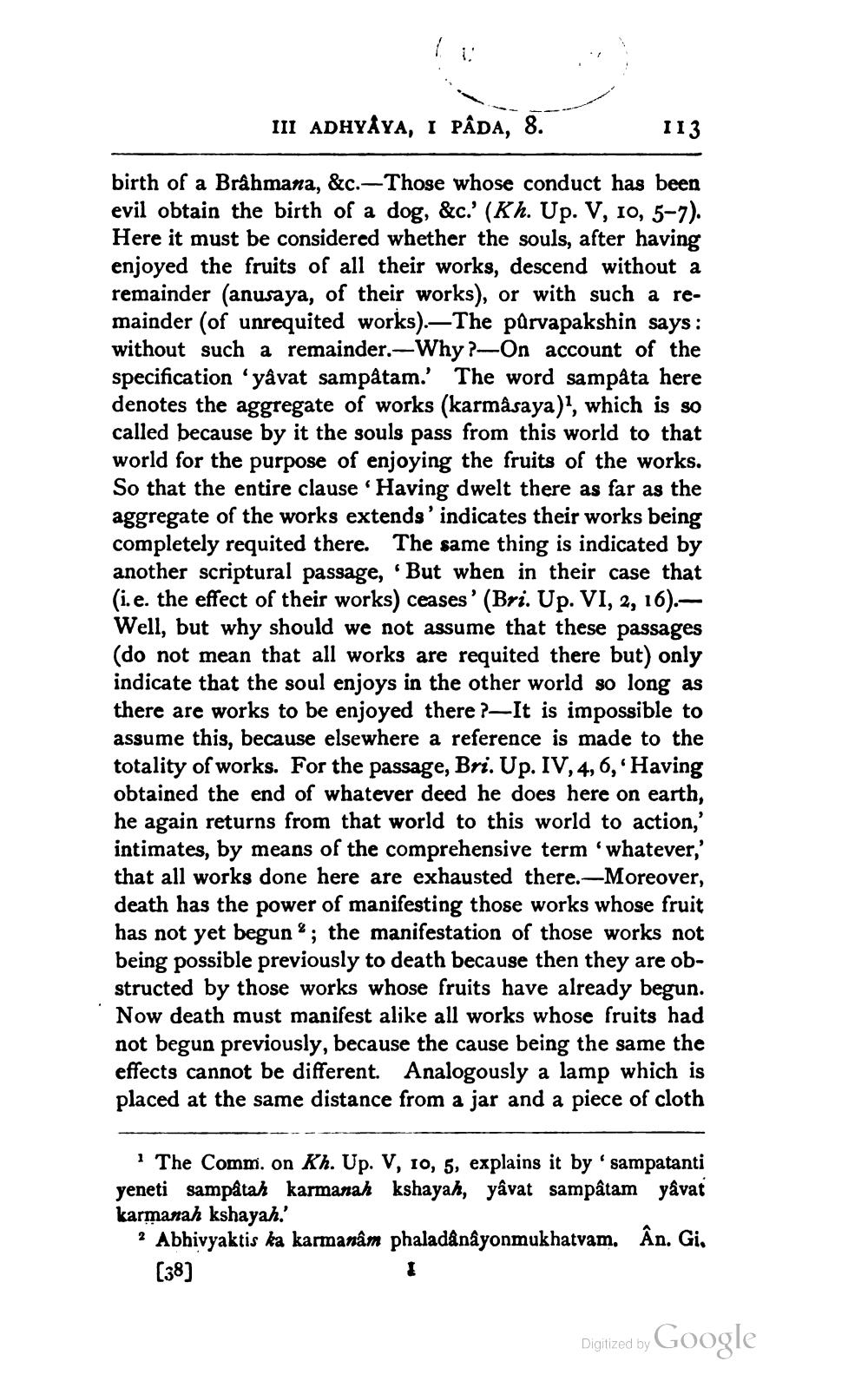________________
III ADHYAYA, I PÂDA, 8.
113
birth of a Brâhmana, &c.—Those whose conduct has been evil obtain the birth of a dog, &c.' (Kh. Up. V, 10, 5–7). Here it must be considered whether the souls, after having enjoyed the fruits of all their works, descend without a remainder (anusaya, of their works), or with such a remainder (of unrequited works).—The pūrvapakshin says: without such a remainder.-Why ?-On account of the specification 'yavat sampátam. The word sampata here denotes the aggregate of works (karmasaya), which is so called because by it the souls pass from this world to that world for the purpose of enjoying the fruits of the works. So that the entire clause 'Having dwelt there as far as the aggregate of the works extends' indicates their works being completely requited there. The same thing is indicated by another scriptural passage, ‘But when in their case that (i.e. the effect of their works) ceases ' (Bri. Up. VI, 2, 16).Well, but why should we not assume that these passages (do not mean that all works are requited there but) only indicate that the soul enjoys in the other world so long as there are works to be enjoyed there ?—It is impossible to assume this, because elsewhere a reference is made to the totality of works. For the passage, Bri. Up. IV, 4, 6,'Having obtained the end of whatever deed he does here on earth, he again returns from that world to this world to action,' intimates, by means of the comprehensive term 'whatever,' that all works done here are exhausted there.-Moreover, death has the power of manifesting those works whose fruit has not yet begun; the manifestation of those works not being possible previously to death because then they are obstructed by those works whose fruits have already begun. Now death must manifest alike all works whose fruits had not begun previously, because the cause being the same the effects cannot be different. Analogously a lamp which is placed at the same distance from a jar and a piece of cloth
· The Comm. on Kh. Up. V, 10, 5, explains it by 'sampatanti yeneti sampatah karmanah kshayah, yâvat sampatam yâvat karmanah kshayah.' 2 Abhivyaktis ka karmanâm phaladânâyonmukhatvam. Ân. Gi,
(38)
Digitized by
Digilzed by Google




